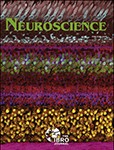Transcutaneous Electrical Nerve Stimulation Shows Promise in MS
This study found that electrical nerve stimulation reduced cortical motor representation in MS
Daily transcutaneous electrical nerve stimulation (TENS) may decrease cortical motor representation in patients with multiple sclerosis (MS), according to findings from a study carried out in Belgium.
 The study was authored by Koen Cuypers, Ph.D., of Hasselt University in Diepenbeek, Belgium, along with colleagues, and was published in the journal Neuroscience (Cuypers et al., 2013).
The study was authored by Koen Cuypers, Ph.D., of Hasselt University in Diepenbeek, Belgium, along with colleagues, and was published in the journal Neuroscience (Cuypers et al., 2013).
Results from previous research have suggested that TENS may help decrease impairment of fine motor skills as well as reduce tremor and spasticity in MS patients.
However, research looking into the effects of peripheral sensory stimulation on recovery of motor functions in MS patients is sparse, these authors noted. In addition, they said, no studies have assessed how long-term TENS might affect reorganization of cortical motor representations of the hand musculature in MS patients.
"In this double blind crossover design, patients received either TENS or sham stimulation for 3 weeks (1 hour per day) on the median nerve region of the most impaired hand, followed by the other stimulation condition after a washout period of 6 months," the authors wrote.
Six female patients with MS participated in the study. They ranged in age from 34 to 60 years, with a mean age of 50. All were right-handed and were stable, with no evidence of relapse in the 6 months preceding entry into the study.
The investigators used transcranial magnetic stimulation at baseline, then again after each 3-week stimulation protocol, to map cortical motor representation.
Based on their findings, they said that stimulation with TENS may be a viable treatment option in MS patients. "Specifically, we found that long-term stimulation with TENS resulted in a significant reduction of the cortical representation of the stimulated muscle."
They noted that their most recent findings were in contrast to previous work with healthy subjects. In those studies, stimulation with TENS resulted in significant enlargement of the cortical representations of the hand and forearm musculature on the stimulated side.
Previous researchers have suggested that GABAergic interneurons at the motor cortex level are selectively affected by MS, and that such anomalies may cause an imbalance between cortical excitability and inhibition.
However, Dr. Koen and his group said that TENS intervention may benefit MS patients by working to restore a more optimal balance. "Therefore," they wrote, "it is plausible that the observed reduction of MAP area after a long-term somatosensory intervention may have been due to the formation of new GABAergic inhibitory connections that were previously impaired by the MS pathology."
"It is noteworthy that the cortical motor maps in the post-intervention session were assessed at least 12 hours (but not more than 24h) after the last TENS stimulation to ensure that changes in cortical motor maps were not affected by underlying changes in the excitability of corticospinal projections to those muscles," the authors wrote.
"In summary, we can conclude that, although the mechanisms underlying our findings are still unclear, long-term TENS treatment is able to reorganize motor maps in patients with MS," the investigators wrote.
Key open questions
- What are the physiologic mechanisms underlying the success of TENS in treating symptoms of MS?
- Would the positive results shown here be likely to be duplicated in a larger cohort of patients with MS?
Disclosures
The authors have disclosed no relevant financial interests.


